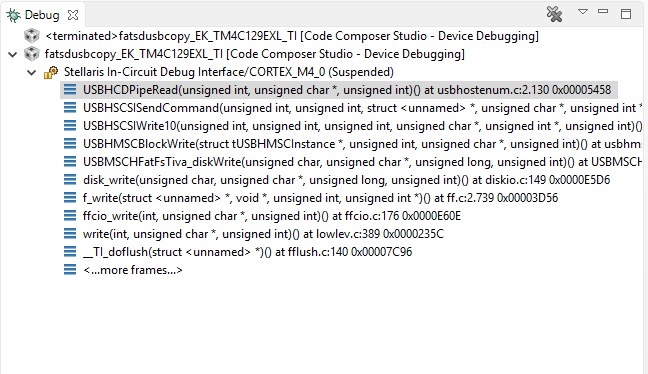Tool/software: TI-RTOS
This is our .cfg configuration.
var HeapMem = xdc.useModule('ti.sysbios.heaps.HeapMem');
var heapMemParams = new HeapMem.Params();
heapMemParams.size = 0x100000;
heapMemParams.sectionName = ".external";
heapMemParams.buf = 0x60000000;
heapMemParams.instance.name = "sdram";
Program.global.sdram = HeapMem.create(heapMemParams);
Memory.defaultHeapInstance = Program.global.sdram; <.------------------------- LINE X
When this line X is enabled f_write() function locks at USBHCDPipeRead(uint32_t ui32Pipe, uint8_t *pui8Data, uint32_t ui32Size) function in the usvhostenum.c ( Tiware/ usblib).
I have tested global heap with external ram with NDK and other TI-RTOS modules and our functions that uses ( malloc and free) with no problems , but
there is this issue with FatFS , so I have to disable Heap in external RAM for it works , that causes memory restrictiions in others modules that use malloc/free internally.



